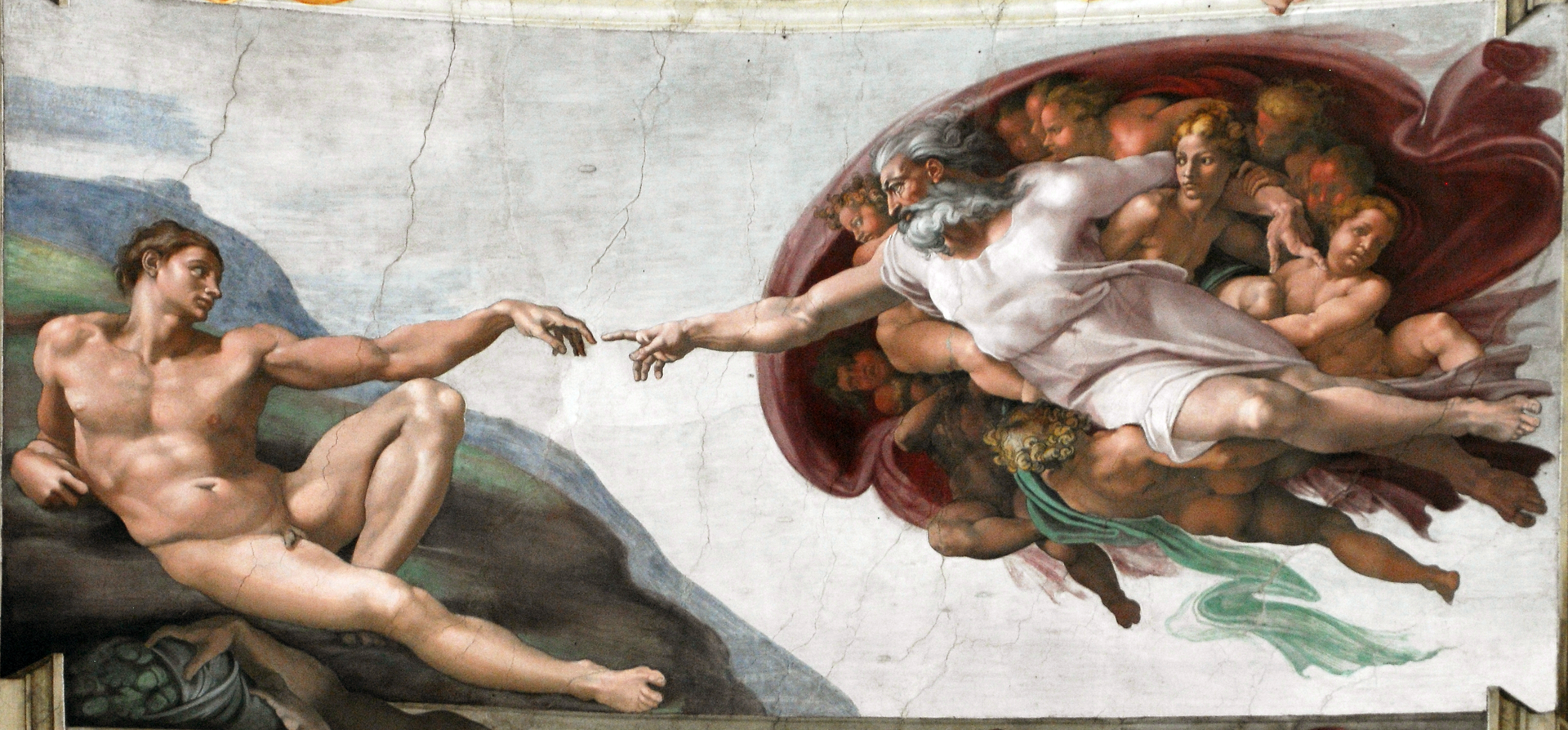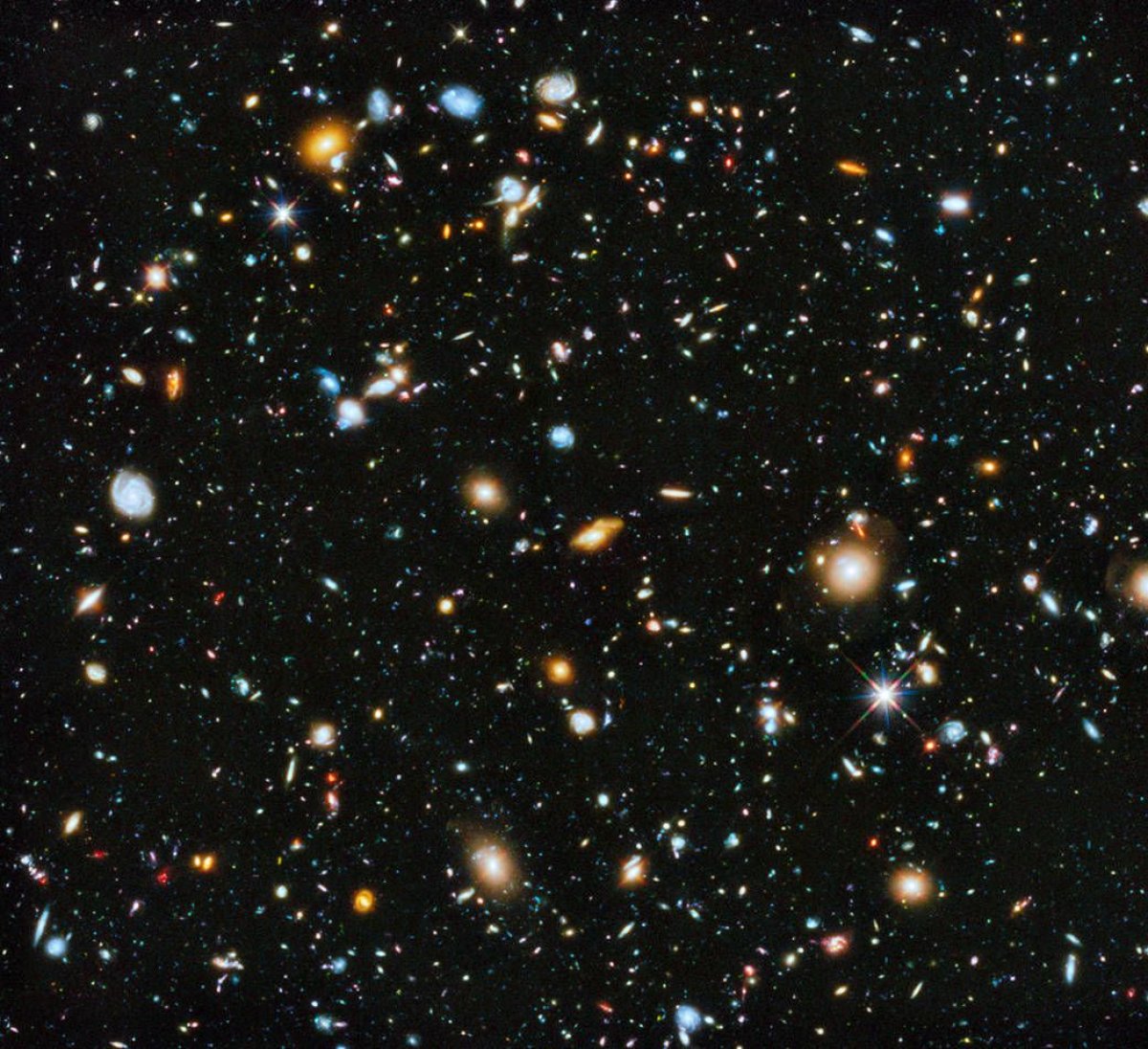
Whether or not God exists is a question that has reverberated throughout history and continues to be the source of heated debate and polarization. Over recent decades, the idea that science can answer this question has gained some momentum—the discovery of the Higgs boson, or 'God' particle (a name largely detested by scientists)—showed an invisible field permeated the universe.
Of course, this monumental revelation had nothing to do the existence of God, but it did raise the question of whether science can play a role in answering what appears to be an unanswerable question.
Last year, Emily Thomas, Assistant Professor of Philosophy at the U.K.'s Durham University, wrote that the vastness of space would indicate God does not exist: "The universe is…really, really old. Perhaps over 13 billion years old. Earth is around four billion years old, and humans evolved around 200,000 years ago.
"Temporally speaking, humans have been around for an eye-blink. Clearly, there is a discrepancy between the kind of universe we would expect a human-oriented God to create, and the universe we live in. How can we explain it? Surely the simplest explanation is that God doesn't exist."

In an article in New Scientist, Graham Lawton points out that many non-believers argue that the absence of God indicates a divine creator does not exist. Scott Aikin, a philosopher of religion at Vanderbilt University in Tennessee, said: "The evidence points to the fact that God doesn't exist. I'm of the view that absence of evidence is evidence of absence."
But believers argue the opposite. Some say that because scientists have not proven God does not exist—and proving a negative is notoriously problematic—it will always lie within the realms of possibility. Furthermore, they say a God's existence needs no proof nor justification and that a divine being only shows itself to true believers, Lawton notes.
How and when the belief in God emerged is fairly well documented. There is evidence of paleolithic people worshiping various entities. It is thought the idea of 'big Gods'—singular divine beings that could punish or reward, especially in the afterlife, arose in order for societies to develop. If people thought good behaviour on Earth would lead to eternal happiness in death, they would be more cooperative and communities could flourish.
But this still does not answer the question of whether we can prove the existence of God.
At present, scientists in London are using psychedelic drugs to simulate near death experiences, which are often cited as showing there is an afterlife. What their findings will eventually show would not provide a definitive answer, but it might help explain any "light at the end of the tunnel" phenomena.
Furthermore, many 'miracles' from religious texts have subsequently been explained by scientists—the 10 plagues said to have been brought upon ancient Egypt have been accounted for via natural processes, for example.
Other projects exploring the universe and the miniscule particles that make it will continue to provide answers about the physics of our surroundings—but questions of the divine, as astrophysicist Ethan Siegel wrote in 2014, will not be answered: "Science can never prove or disprove the existence of God, but if we use our beliefs as an excuse to draw conclusions that scientifically, we're not ready for, we run the grave risk of depriving ourselves of what we might have come to truly learn."
Uncommon Knowledge
Newsweek is committed to challenging conventional wisdom and finding connections in the search for common ground.
Newsweek is committed to challenging conventional wisdom and finding connections in the search for common ground.
About the writer
Hannah Osborne is Nesweek's Science Editor, based in London, UK. Hannah joined Newsweek in 2017 from IBTimes UK. She is ... Read more
To read how Newsweek uses AI as a newsroom tool, Click here.








